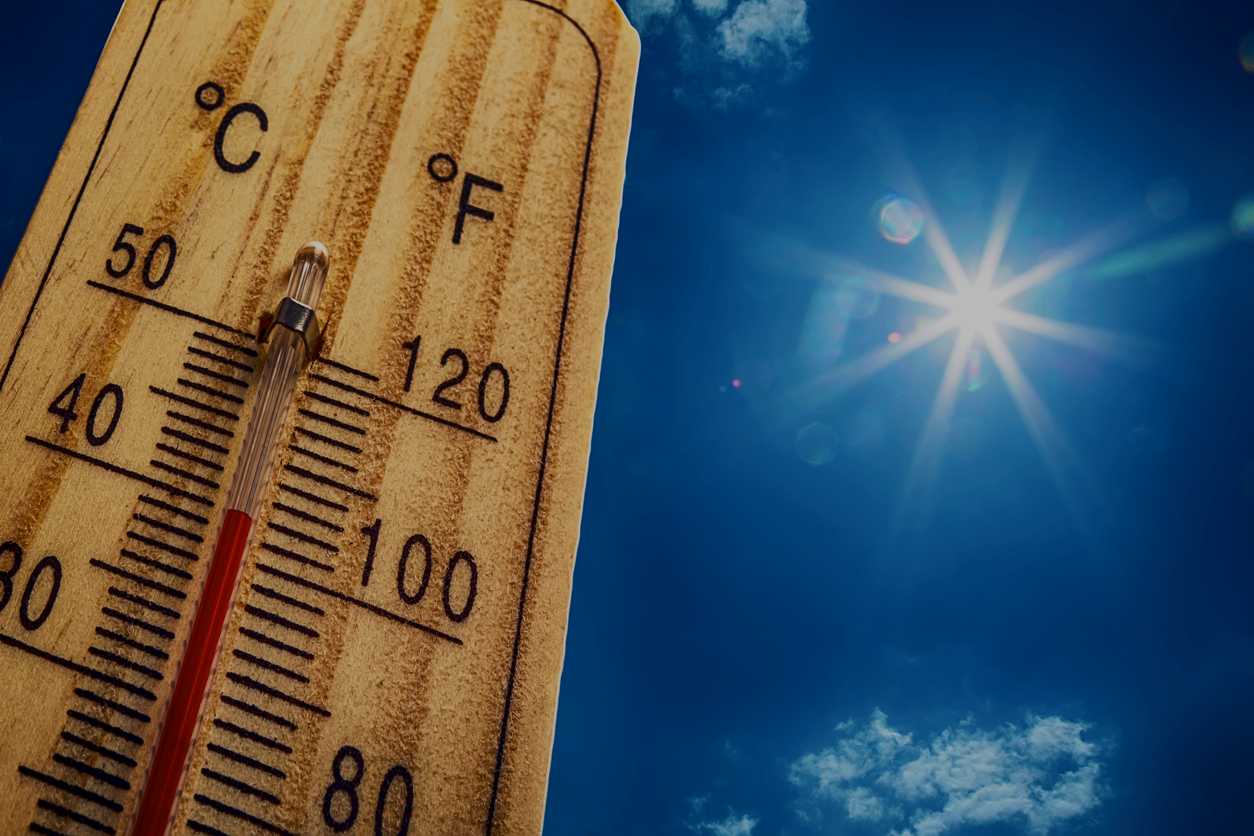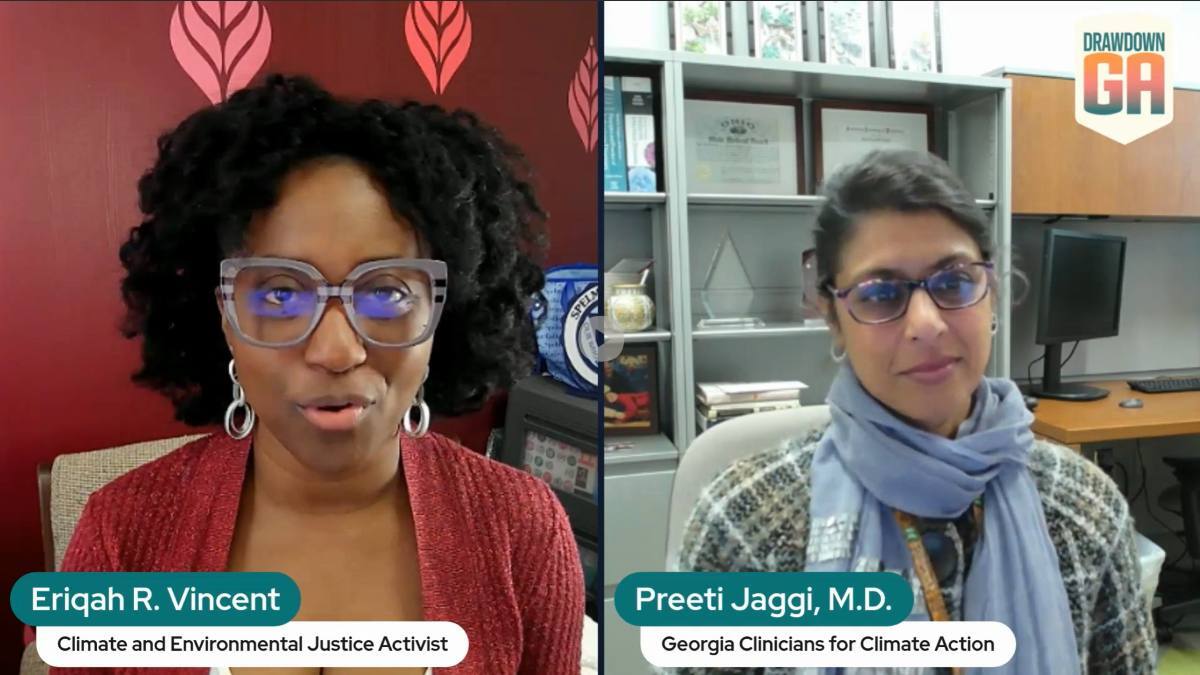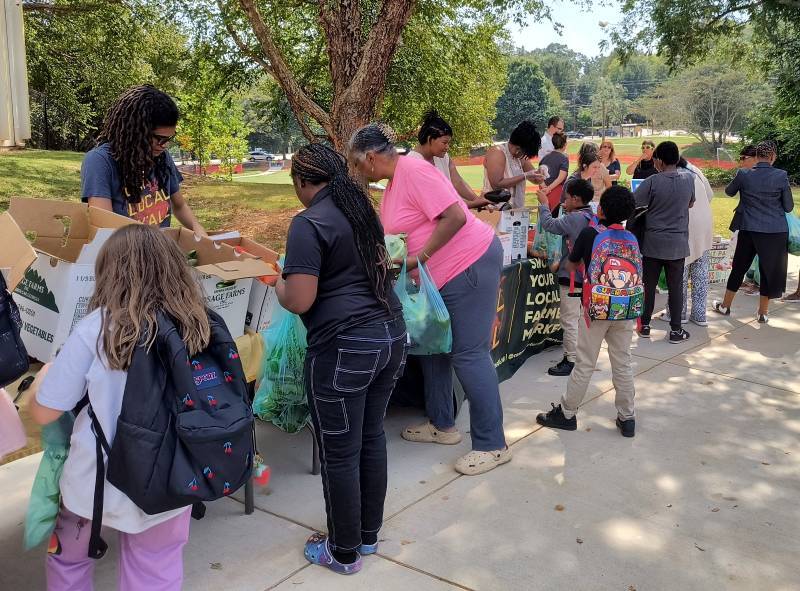Drawdown Georgia is focused on scaling climate solutions that have co-benefits “Beyond Carbon.” It’s important to understand how a changing climate can have a public health impact. Thank you to Georgia Clinicians for Climate Action for contributing to our knowledge base of climate public health impacts.
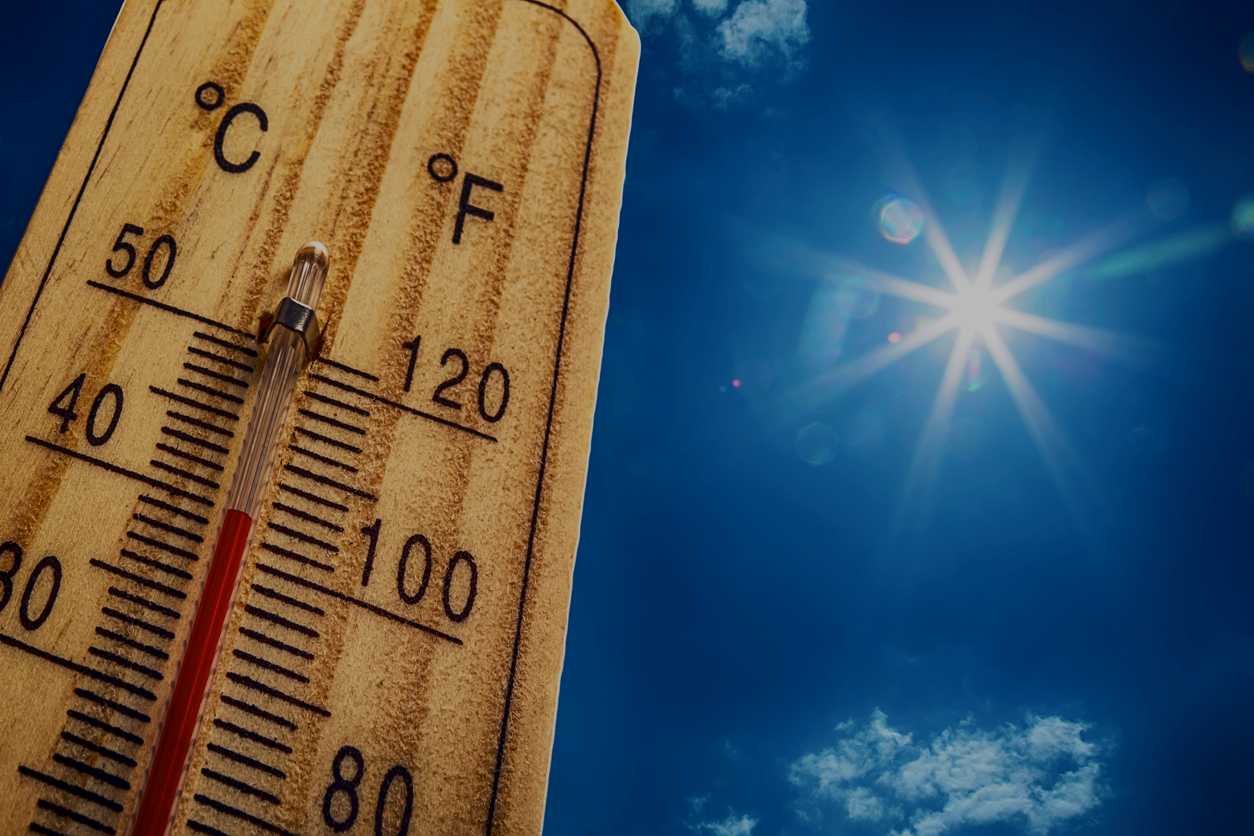
Understanding How Air Pollution, Heat, and Climate Affect the Country and Georgia
It is summer, and we’re living in a changing climate. Heat and air pollution can both have negative impacts on our health in the summertime, and climate worsens both of these issues.
Coping with hotter summers
Average temperatures are climbing around the world as greenhouse gases trap more heat in the atmosphere. In fact, the National Oceanic and Atmospheric Administration just completed a 10-year update to its “normal” average temperatures. You can see from their series of maps that our average temperature has warmed quite a lot in the last 100 years.
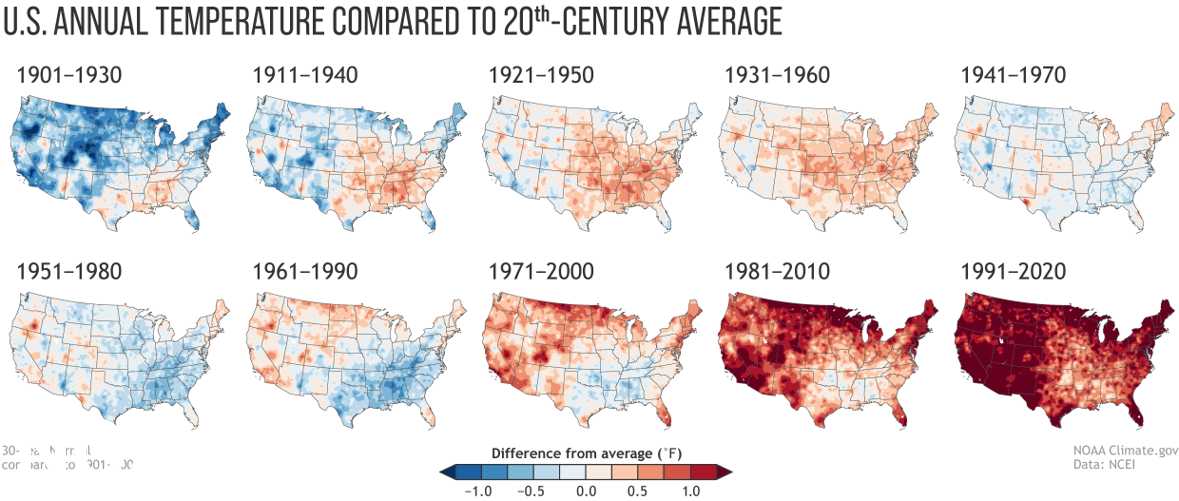 Image by NOAA
Image by NOAA
Summer temperatures now tend to come earlier in the year and last longer into the fall than they used to. We also have more frequent and longer heat waves. The unprecedented temperatures recently felt in the Pacific Northwest are just one example of the changes that are in store.
What does this mean for us, living here in Georgia? It means we need to be prepared - cities and counties need cooling centers for people who don’t have air conditioning, and we should be prepared when we are outside during the day. Whether we are at a park or playground, playing sports, or working outside, we can all be affected by heat.
There are two ways heat affects us: we can get heat illness, where our body actually gets too hot and we become sick. Heat also exacerbates chronic conditions such as heart disease or high blood pressure. Heat is more dangerous for infants and young children and those over 65 and for people taking certain medicines.
The best way to prepare for heat is to stay hydrated, stay cool, and stay informed. If you don’t have air conditioning, on hot days you can go to a library, mall, or cooling center. If you’re outside, have plenty of cold water, and take frequent breaks in the shade to cool off. If you have relatives who are at extra risk from heat, check on them often. The CDC has additional helpful information on preparing for heat on their website.
Impacts of Air Pollution
Hotter temperatures also lead to conditions where more air pollution forms. We get more ozone, and we can get more particle pollution.
Ozone is the air pollutant that is the most concerning in the summer. Ozone forms from a chemical reaction of other pollution, heat, and sunlight. Because summer has hotter days, and longer days with more sunlight, it is also known as ozone season. And as our climate gets hotter, more ozone will form unless we clean up our air.
Ozone irritates and damages your airways and lungs. It is especially dangerous for people with asthma and emphysema, and can also cause new cases of asthma and progression of emphysema in the lungs. One recent scientific study found that long-term exposure to higher levels of ozone is as bad for people with emphysema as smoking a pack of cigarettes a day.
Particle pollution also tends to be higher in the summer. Particle pollution forms when we burn things: fuel for cars and trucks, fuel for power plants, and even wood in fireplaces or wood pellet power plants. Burning wood pellets is as bad for our health as coal. Particle pollution also forms when there are wildfires, which happen more in summer and fall when it’s hotter. Because we use more electricity for air conditioning in the summer, our power plants are burning more fuel. This can create more particle pollution.
Particle pollution can cause asthma and emphysema attacks, respiratory and cardiovascular harm, and even early death. A recent study found that particle pollution from fossil fuels causes 13% of all deaths in the U.S. Breathing particle pollution can also cause strokes as well as lung and other cancers. It negatively impacts those with dementia, diabetes and high blood pressure. It affects students’ ability to learn, and workers' ability to think. One study found that on high particle pollution days, the stock market actually goes down.
How does a changing climate influence particle pollution? With higher temperatures, we are more likely to get wildfires like the ones in north Georgia in 2016. We can also see what happened in the western U.S. last year when wildfires created dangerous particle pollution from Canada to Arizona. We will also need more energy for more air conditioning.
What can we do about all this – heat, air pollution, and climate change?
The same fuels that are contributing to climate change are also exacerbating illness, so the first answer is to clean up our fuel: fuel for power, fuel for transportation. We can transition to electric vehicles: cars, trucks, buses, school buses, and trains. We can transition to clean, renewable power: solar, wind, and geothermal. Georgia has abundant sunshine and is perfect for solar energy. We also could have offshore wind turbines all along our coast, and other areas where there is more wind. We have the technology to do what we can to keep Georgians from dying from air pollution and to stop making greenhouse gases.
We know that "Healthy Air is Health Care" -- that solving for climate means solving for serious public health issues. Let’s do it!


